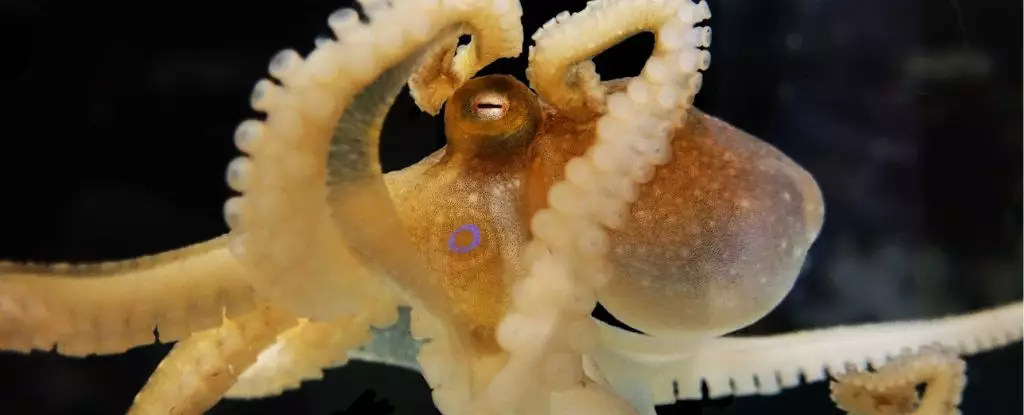The recent discovery in the octopus genome suggests that cephalopods may have the oldest sex chromosomes of any animal. Scientists were previously unsure whether these creatures had a form of sex determination encoded in their genes. Unlike mammals with the XY sex chromosome system, which determines male and female characteristics, the sex determination in octopuses was believed to be based on external factors such as egg incubation temperature. However, a study by researchers at the University of Oregon has provided evidence of genetic sex determination among octopuses.
The study focused on the California two-spot octopus (Octopus bimaculoides), the first cephalopod to have its whole genome sequenced. By comparing the genomes of male and female octopuses, researchers identified a distinct chromosome pair on chromosome number 17. Males typically possess a double-Z pair, while females have only one Z chromosome. This ZW sex-determination system is similar to that found in birds, crustaceans, and some insects, demonstrating the evolutionary uniqueness of cephalopods in terms of sex chromosomes.
Further analysis of the genomes of octopuses, squids, and nautilus revealed that the Z chromosome is an “evolutionary outlier” that originated between 455 and 248 million years ago. This makes the octopus Z chromosome potentially the oldest animal chromosome known to date, surpassing even some insects. The conservation of the Z chromosome across cephalopod species suggests ancient origins and highlights the complexity of sex chromosome evolution in non-mammalian organisms.
The diversity of sex chromosome systems across different animal groups challenges traditional views of sex determination. While mammals like humans rely on the XY system, other species like crocodiles exhibit sex determination based on environmental factors. The loss of the corresponding W chromosome in female octopuses parallels the evolutionary trajectory of the Y chromosome in humans, indicating ongoing changes in sex chromosome composition over time. The discovery of ancient sex chromosomes in cephalopods opens up new avenues for studying the evolution of sex determination in diverse animal lineages.
The deep evolutionary roots of octopuses make them intriguing subjects for evolutionary biology research. By investigating the genetic basis of sex determination in cephalopods, scientists can gain insights into the mechanisms underlying the evolution of sex chromosomes. The complexity and diversity of sex chromosome systems across different animal groups highlight the need for further studies to unravel the evolutionary history of sex determination. Octopuses represent a unique model for studying the genetic and evolutionary aspects of sex chromosomes, shedding light on the interplay between genes and external factors in shaping reproductive strategies in non-mammalian organisms.


Leave a Reply